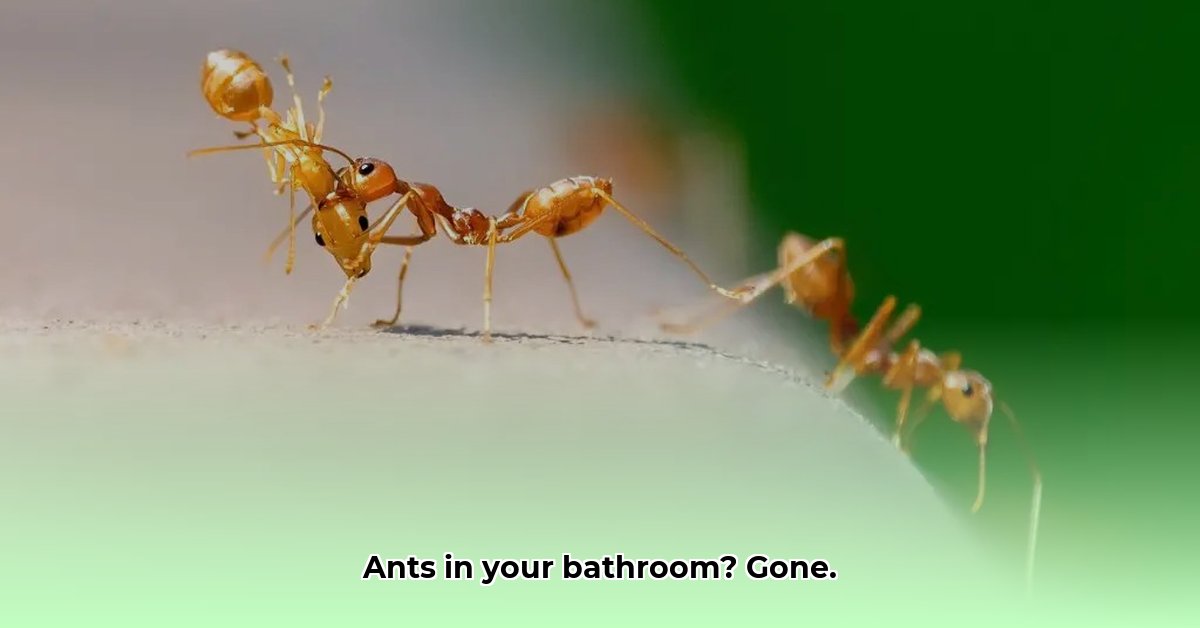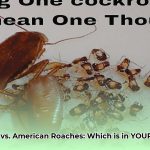Understanding the Ant Invasion
Finding ants in your bathroom is a common nuisance. This comprehensive guide provides effective solutions for eliminating these unwelcome guests and preventing future infestations. We’ll explore why ants are attracted to bathrooms, detail various removal methods, and outline preventative measures to keep your bathroom ant-free.
Why Are Ants Attracted to Bathrooms?
Bathrooms can be surprisingly attractive to ants, offering a combination of necessities:
- Moisture: Leaky faucets, damp towels, and post-shower humidity provide a readily available water source.
- Food Sources: Even tiny crumbs of toothpaste, soap residue, or stray hairs can become a feast for ants.
- Shelter: Cracks and crevices near pipes or under sinks offer ideal hiding spots and nesting sites.
Effective Elimination Methods
DIY Tactics
Here are some do-it-yourself methods for tackling an ant infestation:
1. Deep Cleaning: A thorough cleaning eliminates food sources. Wipe down surfaces, sweep floors, and clean drains to remove any attractants.
2. Moisture Control: Reduce humidity by fixing leaks, running the exhaust fan, and wiping up standing water. A dehumidifier can also be helpful.
3. Seal Entry Points: Caulk cracks and crevices around pipes, windows, and baseboards to prevent ants from entering.
Natural Remedies
These eco-friendly options can deter ants:
-
Vinegar Solution: Mix equal parts white vinegar and water and spray along ant trails and entry points. The strong smell disrupts their scent trails.
-
Lemon Juice: Similar to vinegar, lemon juice interferes with ant scent trails. Mix equal parts lemon juice and water and spray in affected areas.
-
Peppermint Oil: Ants are often repelled by the strong scent of peppermint. Mix a few drops of peppermint essential oil with water and spray near entry points. However, scientific evidence of its effectiveness is still being researched.
| Remedy | Likely Effectiveness | Cost | Ease of Use |
|---|---|---|---|
| Vinegar Spray | Moderate | Low | Easy |
| Lemon Juice | Moderate | Low | Easy |
| Peppermint Oil | Moderate | Medium | Easy |
These natural remedies may deter ants but might not be enough for larger infestations.
Commercial Products
For more persistent ant problems, commercial ant baits and insecticides offer stronger solutions. Always follow product instructions carefully and keep them away from children and pets.
-
Ant Baits: These attract ants with a sweet, poisoned bait that they carry back to the colony. The effectiveness can vary based on the ant species and the type of bait.
-
Insecticides: Sprays and powders offer a quicker knockdown, but follow label instructions meticulously due to potential harm to pets and children. Some insecticides may require temporary evacuation of the bathroom area.
Professional Pest Control
For severe or recurring infestations, professional pest control offers the most effective solution. Experts can identify the ant species, determine the best treatment, and provide long-term prevention strategies.
| Method | Likely Effectiveness | Estimated Cost | Ease of Use | Potential Downsides |
|---|---|---|---|---|
| Vinegar Spray | Moderate | Low | Easy | May not eliminate large colonies |
| Baking Soda | Moderate | Low | Easy | Requires direct contact with ants |
| Boric Acid Bait | High | Low | Medium | Can be toxic to pets if ingested in large quantities |
| Ant Traps | High | Medium | Easy | Effectiveness can vary |
| Insecticides | High | Medium | Medium | Potential safety/environmental concerns |
| Professional | Very High | High | Easy (for you!) | Most expensive option |
Long-Term Prevention Strategies
After eliminating ants, prevention is key to keeping them from returning:
-
Consistent Cleaning: Regularly clean surfaces, sweep floors, and empty trash cans to remove food debris.
-
Moisture Control: Repair leaks, use exhaust fans, and wipe up excess water to maintain a dry environment.
-
Proper Food Storage: Store food, including pet food, in airtight containers.
-
Seal Entry Points: Regularly inspect for and seal any new cracks or crevices.
-
Drain Maintenance: Clean drains to remove food particles and prevent clogs, which can attract ants.
Seasonal Considerations
Ant activity fluctuates with the seasons. Increase vigilance during warmer months when ants are most active, especially in the spring and summer. During colder months, focus on sealing entry points to prevent ants from seeking shelter indoors.
By understanding ant behavior and implementing these strategies, you can effectively eliminate and prevent ant infestations in your bathroom. While current knowledge informs these methods, ongoing research continually reveals new insights into ant behavior, so staying informed and adaptable is helpful.
- How to Get Pee Smell Out of Your Couch: A Complete Guide - April 23, 2025
- What Happened to Lane Furniture in Mississippi? - April 23, 2025
- Japanese Floor Beds: A Comprehensive Guide - April 23, 2025










